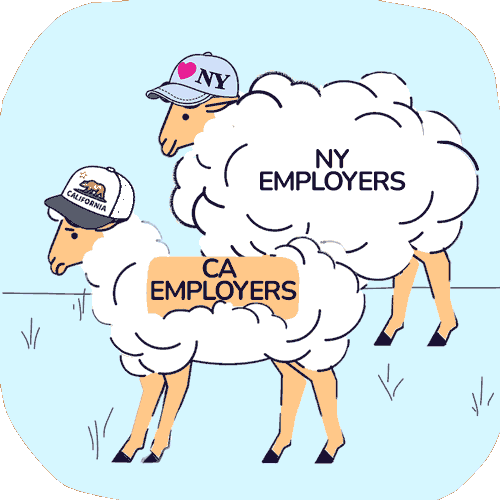NY: Workers Comp Billing Rules - Resident & Fellow Physician Care

Effective May 9, 2025, New York announced an initiative to improve how the state’s workers’ comp system delivers care: allowing resident and fellow physicians to treat injured workers.
Residents or fellows may treat injured workers if:
- They do so under the supervision of a Workers’ Compensation Board (WCB)-authorized physician, and
- They are enrolled in a graduate medical program accredited by the Accreditation Council for Graduate Medical Education
This change significantly expands the pool of providers who can participate in the workers’ comp system, accelerating injured workers’ access to care.
However, practices must know how to bill for treatment rendered by residents and fellows compliantly. Below, we unpack the requirements.
Billing for Resident/Fellow-Provided Care
The most important rule to remember: resident and fellow physicians can treat injured workers but cannot bill for that treatment. As the WCB statement pictured above directs (emphasis ours):
“Treatment rendered by residents and fellows can only be billed by the Board-authorized physician supervising the resident or fellow.”
As is now mandatory, the supervising physician must bill electronically using the CMS-1500 form, and send the billing information to the WCB in the required Extensible Markup Language (XML) format. The bill should reflect the Official New York Workers’ Compensation Medical Fee Schedule.
For services provided by residents and fellows, the bill should include modifier 1R, for which the payer must reimburse the same amount as if the supervising physician performed the services.
Where the resident or fellow served as an assistant at surgery, the supervising physician should apply modifier 84:
- All codes with modifier 84 must accurately reflect the work the resident or fellow performed, as documented in the surgical report.
- Reimbursement for procedure codes with modifier 84 must reflect the percentage in effect (currently 16%) for the physician code fee, and (obviously) only refer to procedures in which the resident or fellow assisted.
Reporting Requirements for Resident/Fellow-Provided Care
Where a resident or fellow provided treatment to an injured worker, the clinical notes must include:
- The name of the resident or fellow
- The name of the supervising physician
- The training program or institution.
As with all New York injured worker treatment, the required narrative report should include:
- The injured workers’ temporary impairment percentage
- The injured workers’ work status
- Whether the condition was caused by work
The WCB has instructed that payers should not deny reimbursement solely because the narrative report is missing one of the three elements above; there may be cases where the WCB determines that those elements are “present, clearly implied, or not critical to the administration of the claim…”
That said, the WCB also notes that “Failing to include this information could result in the delay or denial of benefits to your patient.”
HP-1’s for Resident/Fellow-Provided Care
If the payer fails to properly reimburse for care that a resident or fellow physician provided, the “Board-authorized supervising physician who submitted the bill” may submit a Request for Decision on Unpaid Medical Bill(s) using Form HP-1.0.
As with original bills, resident and fellow physicians may not submit HP-1s, even for treatment they provided.
The WCB intends to propose further regulations to implement new workers’ comp legislation, which the public will be able to view here. New York is moving quickly to serve injured workers more effectively, from bringing residents and fellows on board to mandating electronic billing and much, much more.
Kudos to the WCB and Governor Hochul for taking real action.
daisyBill is a WCB-approved e-billing partner (and we offer much more than a simple clearinghouse). Click below for details:
NY: THE DAISY DIFFERENCE
DaisyBill provides content as an insightful service to its readers and clients. It does not offer legal advice and cannot guarantee the accuracy or suitability of its content for a particular purpose.





.gif)